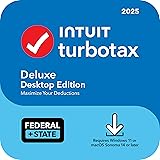Did you know that nearly 1 in 5 adults in the United States don’t have basic financial literacy?
This shocking fact shows we need better money management skills. Jeff Lewis, CPA, CA, FCCA, CIRP, LIT, Senior Vice-President and Partner at BDO Debt Solutions, says talking about debt is key to getting better. Chantel Chapman, Co-Founder of The Trauma of Money, agrees. She stresses the importance of focusing on the future to achieve financial stability.

Learning to manage money well is vital today. It’s not just about making money. It’s about using it wisely. With the right financial education, people can make smart choices with their money and stay out of debt.
Key Takeaways
- Financial literacy is crucial for achieving financial stability.
- Discussing debt is the first step towards recovery.
- Effective money management skills can help individuals make informed decisions.
- Financial education is key to avoiding debt.
- Mastering money management is essential in today’s economy.
The State of Financial Literacy in America
America’s financial literacy rate is crucial for its economic future. Mr. Surya Prasad Neupane, a Chartered Accountant and Certified Management Accountant, points out. It’s not just about how much money you make. It’s about managing, spending, and saving it wisely.
Current Statistics on Financial Knowledge
Many Americans lack basic financial knowledge. For example, they don’t know about compound interest and inflation.
| Financial Knowledge Area | Percentage of Americans Familiar with Concept |
|---|---|
| Compound Interest | 40% |
| Inflation | 55% |
| Risk Management | 30% |
The Real-World Cost of Financial Illiteracy
Lack of financial literacy leads to poor decisions. This can cost a lot in the long run. People who don’t know about finance tend to get into debt and don’t save for retirement.
Financial illiteracy causes stress and reduces stability. It’s key for people to have access to financial literacy resources and personal finance tips. This helps them make better choices.

The Importance of Financial Literacy in Today’s Economy
Knowing how to manage your money is vital today. Fred Masters, a top financial literacy expert, says it’s essential to grasp financial concepts. This helps you deal with today’s finance world.
Financial literacy covers many skills, like planning, investing, and budgeting. Knowing these basics is key to making smart money choices.
Definition and Core Components
Financial literacy means you can handle your money well. It includes managing your finances, budgeting, and investing. The main parts of financial literacy are:
| Component | Description | Importance |
|---|---|---|
| Financial Planning | Creating a detailed plan for your finances | Helps reach your long-term goals |
| Investing Basics | Knowing about different investments and strategies | Crucial for growing your wealth |
| Budgeting Strategies | Learning how to manage your income and expenses | Key for keeping your finances stable |
How Financial Knowledge Creates Opportunity
Being financially literate opens up many chances for better money management. By knowing about planning, investing, and budgeting, you can make smart choices. This leads to financial stability and success.

For example, learning about investing basics can help you grow your wealth. Budgeting strategies help manage your spending. So, financial literacy is key to a secure financial future.
Financial Literacy as a Critical Life Skill
Financial literacy is now seen as a key skill, alongside reading and writing. Dr. Maria Cantalini-Williams, Dean of the Faculty of Education at Wilfrid Laurier University, says experts like Fred Masters share important views on it. They help people of all ages and backgrounds.
Why It Ranks Alongside Reading and Writing
Financial literacy is key because it helps people manage their money well. Like reading and writing, it’s essential for making smart money choices. It includes knowing how to budget, save, and invest, which are crucial for financial stability.
How It Influences Daily Decision Making
Financial literacy helps people make better money choices every day. For example, knowing about credit card debt or compound interest can change how you spend and save. A financially savvy person can handle financial ups and downs better.
The Role of Financial Confidence in Success
Financial confidence is crucial for success. When you trust your financial knowledge, you’re more likely to invest in your future or negotiate better salaries. This confidence comes from knowing how to handle money well.
| Financial Skill | Importance | Benefit |
|---|---|---|
| Budgeting | High | Helps manage expenses |
| Saving | High | Builds financial security |
| Investing | Medium | Grow wealth over time |
7 Ways Financial Literacy Transforms Your Financial Future
Being financially literate can greatly improve your financial stability. It’s not just about managing money. It’s about making smart choices that lead to financial security and success. Loong Yin Wong points out that many Canadians aren’t saving enough for retirement. This shows how crucial financial literacy is for reaching long-term financial goals.
Creating and Maintaining Emergency Funds
Financial literacy helps you create and keep emergency funds. This means setting aside some of your income in a savings account. An emergency fund helps you avoid debt when unexpected costs come up. It’s wise to save three to six months’ worth of living expenses.
Making Strategic Investment Decisions
Financial literacy also helps you make smart investment choices. You learn about different investments like stocks, bonds, and mutual funds. Knowing how to invest can grow your wealth over time.
Navigating Major Life Purchases
Financial literacy also helps with big purchases like homes or cars. You learn about the total cost, including financing and maintenance. Being informed helps you make better choices and avoid financial mistakes.
Planning for Retirement Security
Planning for retirement is a key part of financial literacy. It’s about starting early, understanding compound interest, and creating a steady income in retirement. Retirement planning might seem hard, but with the right knowledge, you can secure your financial future.
To show the impact of financial literacy, here’s a table with key strategies and their benefits:
| Financial Strategy | Benefits |
|---|---|
| Creating Emergency Funds | Avoids debt, covers unexpected expenses |
| Making Strategic Investments | Grows wealth, achieves long-term financial goals |
| Navigating Major Purchases | Makes informed buying decisions, avoids financial pitfalls |
| Planning for Retirement | Ensures financial security, sustainable income in retirement |
By using these strategies, you can greatly improve your financial stability. Financial literacy is a powerful tool that can change your financial future.
Why Everyone Needs Financial Education to Succeed
Financial markets and products are getting more complex. This makes financial education more important than ever. It’s not just a nice-to-have, but a must-have for everyone.
Financial Literacy Across Different Income Levels
Many think financial education is only for the wealthy. But it’s crucial for everyone, no matter their income. Knowing about budgeting strategies and investments can greatly improve your financial health.
Jenna Weishar from Dejero says financial literacy is key, no matter your income. It helps people make smart financial choices, no matter their financial status.
How Financial Knowledge Levels the Playing Field
Financial knowledge can make things fairer. It gives people the tools to deal with complex financial systems. This way, they can compete more evenly. Financial literacy resources help close the gap between different income groups.
| Income Level | Financial Challenges | Role of Financial Education |
|---|---|---|
| Low Income | Managing limited resources, avoiding predatory practices | Budgeting, understanding credit, accessing financial assistance |
| Middle Income | Saving for the future, managing debt | Investment strategies, retirement planning, debt management |
| High Income | Wealth management, tax optimization | Advanced investment strategies, tax planning, estate planning |
Success Stories: From Financial Struggle to Security
Many people have moved from financial struggles to stability thanks to financial education. By using good budgeting strategies and financial knowledge, they’ve reached financial stability.
Financial education is key to financial success. By learning and applying financial knowledge, people can beat financial challenges and secure a stable future.
Financial Literacy Through Different Life Stages
As we go through life, our financial needs and goals change. This makes learning about money at every stage very important. Katherine Loveys, Executive Director of Parents for Community Living KW Inc, thanks Fred Masters for teaching their staff about money.
Young Adults: Building Strong Foundations
Young adults start by learning basic money skills. This includes making a budget, handling debt, and saving for the future. Building a strong financial base early on is key to financial stability later.
Mid-Life: Balancing Competing Priorities
In mid-life, people deal with many financial tasks. These include paying for a house, kids’ education, and saving for retirement. Good financial planning means finding a balance and making smart choices about money.
Pre-Retirement: Maximizing Preparation
As retirement nears, saving for it becomes a top priority. Knowing retirement planning strategies and possibly getting advice from a financial expert is crucial for a secure future.
| Life Stage | Financial Focus | Key Strategies |
|---|---|---|
| Young Adults | Building Foundations | Budgeting, Debt Management, Savings |
| Mid-Life | Balancing Priorities | Investment, Retirement Savings, Education Planning |
| Pre-Retirement | Maximizing Preparation | Retirement Planning, Income Strategies, Estate Planning |
Learning about money at different life stages helps people handle financial challenges. It also helps them reach their long-term financial goals.
The Connection Between Financial Literacy and Overall Wellbeing
Learning about money can greatly improve your life. Knowing how to handle your finances helps you make smart choices. This leads to financial stability.
Impact on Mental Health and Stress Levels
Money worries can cause a lot of stress. But, understanding money can help reduce this stress. It makes you feel more in control of your finances.
Mike Farwell, a TV & Radio Host, praises Fred Masters for his clear money advice. This advice has given him valuable insights.
Financial literacy offers many mental health benefits:
- Reduced financial anxiety: Learning to budget and save can ease money worries.
- Increased confidence: Managing your money well boosts your self-confidence.
- Better financial decision-making: Knowing how to handle money helps you make better choices.
How Financial Stability Affects Physical Health
Being financially stable can also improve your physical health. Less financial stress means fewer health problems. Plus, you can afford better healthcare and living conditions.
Financial Confidence and Relationship Harmony
Financial confidence can also make relationships stronger. When both partners understand their finances, it reduces conflicts. It helps them communicate better about money.
In summary, knowing about money is key to a better life. It improves your mental and physical health, and strengthens relationships. It’s a vital step towards a higher quality of life.
Practical Steps to Improve Your Financial Knowledge
To take control of your financial future, it’s key to boost your financial literacy. Alison Smith, CPA, CGA, Superintendent of Business Services at Kenora Catholic District School Board, points out the value of financial education. She mentions how initiatives she oversees, with help from experts like Fred Masters, make a big difference.
Free Resources and Digital Tools
There are many free resources and digital tools to help improve your financial literacy. Sites like Investopedia and NerdWallet are full of info on budgeting strategies and investing basics. Using these tools can help you make smart financial choices.
Structured Courses and Educational Programs
For a more structured learning path, courses and programs are great. Community colleges and online platforms offer classes on personal finance. They cover topics like financial planning, investment strategies, and saving for retirement.
“Financial education is a powerful tool that can empower individuals to achieve financial stability and success,”
financial experts say.
Building Daily Financial Habits That Stick
Creating daily financial habits is vital for long-term financial health. This includes tracking expenses, setting financial goals, and automating savings. By making these habits part of your daily routine, you can improve your financial well-being.
- Create a budget and track expenses
- Set clear financial goals
- Automate savings and investments
By following these steps, you can greatly improve your financial knowledge and secure a better financial future.
Overcoming Common Barriers to Financial Literacy
Securing a stable financial future starts with overcoming barriers to financial literacy. Many face challenges that stop them from learning how to manage their money well.
Addressing Misconceptions About Money Management
One big barrier is the many misconceptions about handling money. Some think it’s all about saving, not understanding the value of investing, budgeting, and financial products. It’s key to clear up these wrong ideas to make smart money choices. Dr. Gavin Brockett, Acting Dean at Wilfrid Laurier University, praises Fred Masters for teaching money lessons to students. This shows how vital financial education is from a young age.
Making Financial Education Accessible and Engaging
It’s also important to make financial education easy to get and fun. This can be done with digital tools, interactive content, and examples from real life. Technology can help reach more people and make learning fun.
Overcoming Financial Anxiety and Avoidance
Financial anxiety and avoidance stop many from learning about money. It’s crucial to create a safe space where people can talk about their money worries.
“Financial literacy is not just about numbers; it’s about freedom and security.”
By facing and tackling financial anxiety, people can start to improve their money knowledge.
It’s Never Too Late: Starting Your Financial Education Journey Today
Starting your financial education might seem hard, but it’s vital for your future. Knowing about financial literacy helps you make smart money choices. It’s good to know you can always improve your financial health.
Financial planning is a big part of being financially literate. It lets you set goals and find ways to reach them. You might look for advice from experts or online resources. For example, Brigitte Webster learned a lot from Fred Masters about how money affects health.
Starting your financial education journey today means you’re taking charge of your money. It’s about making choices that help you reach your financial goals. By focusing on financial literacy, you’re building a more secure financial future.











